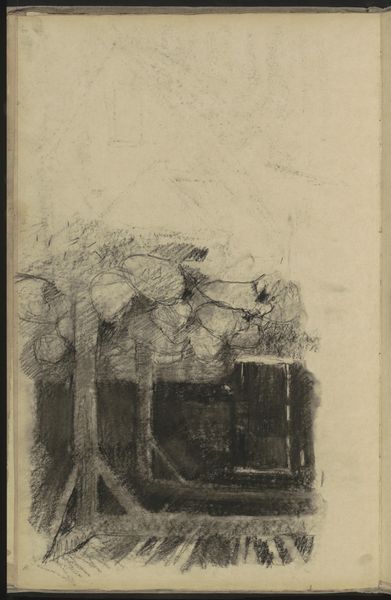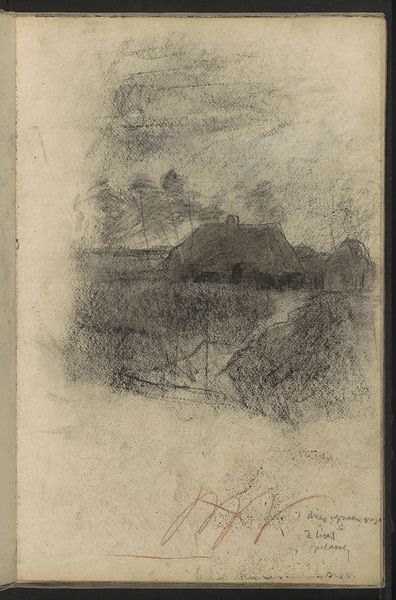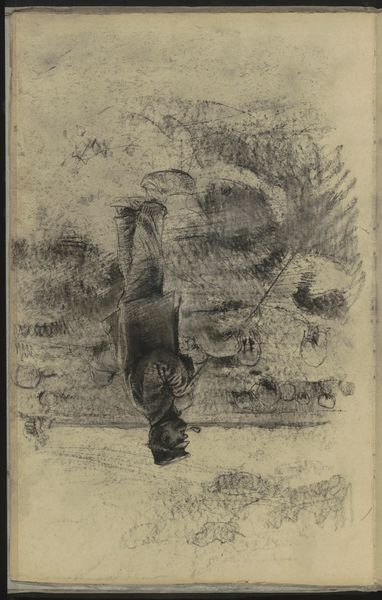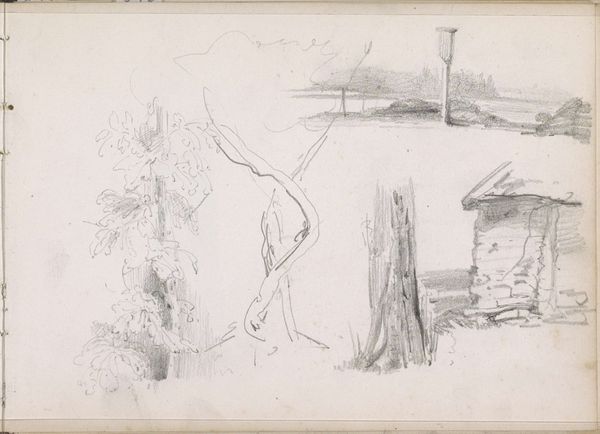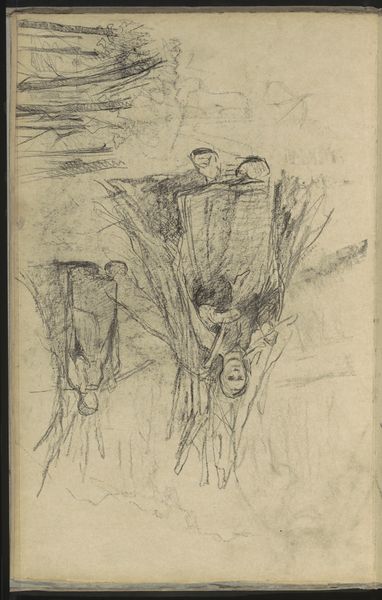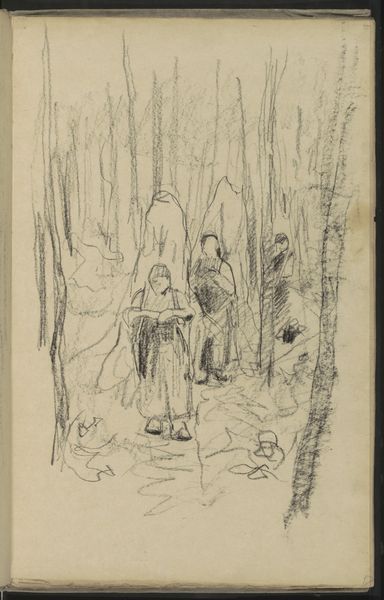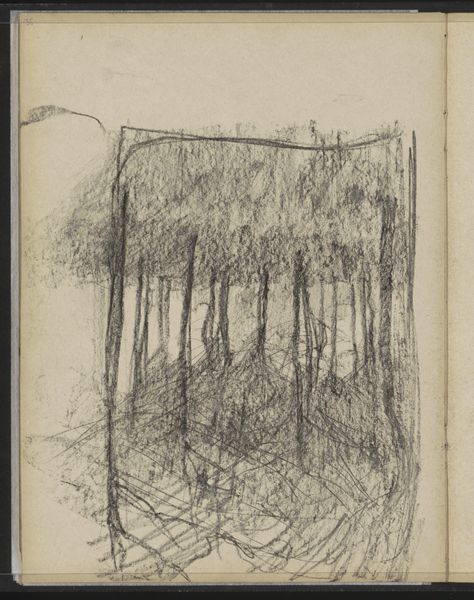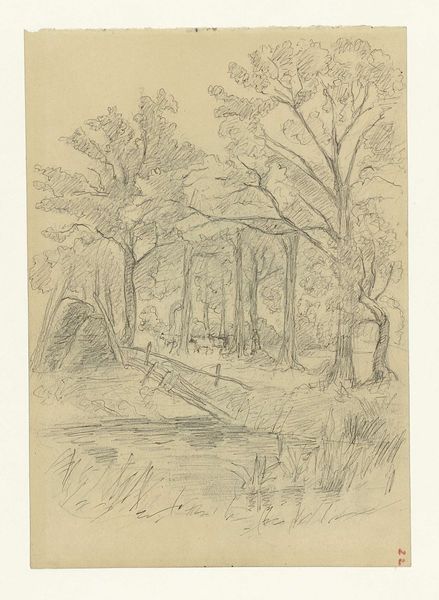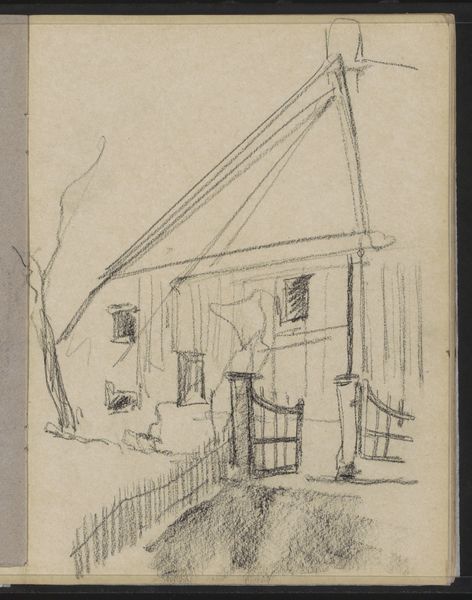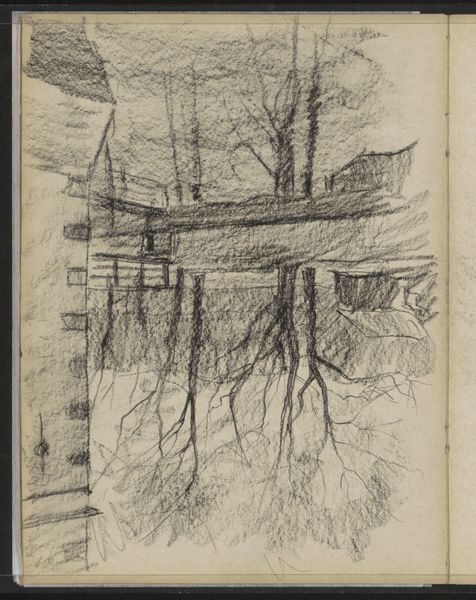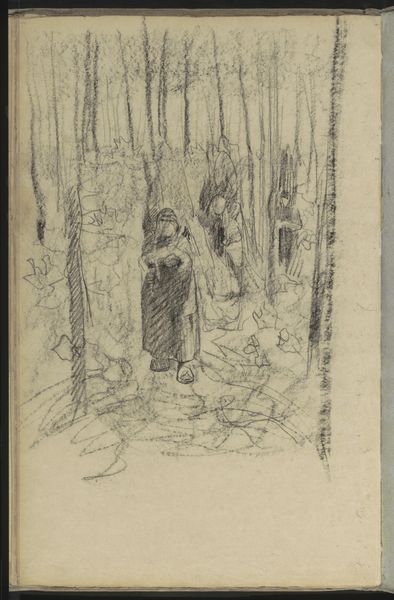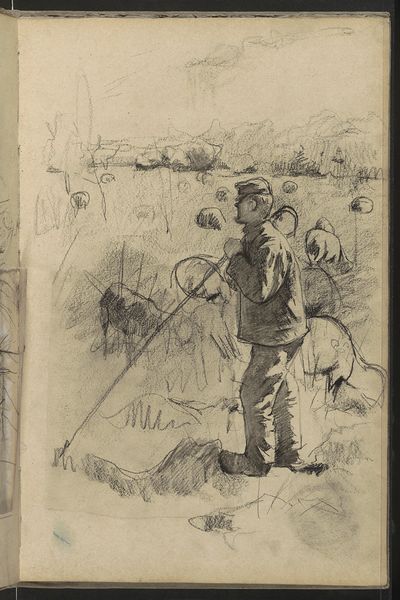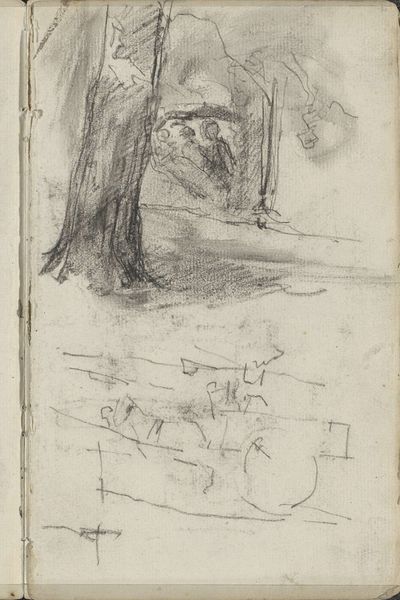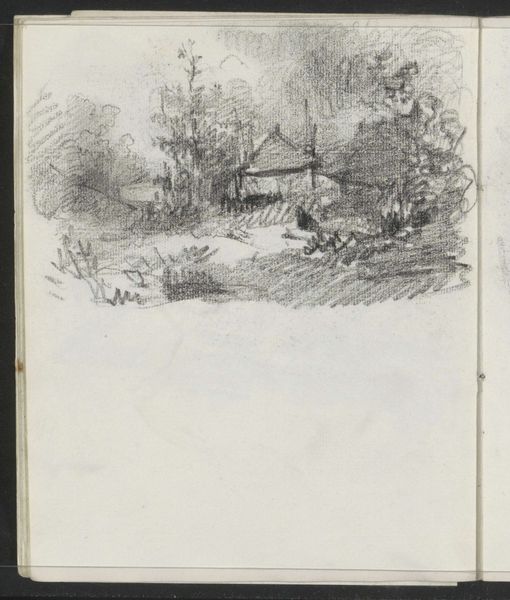
Schaapherder met zijn kudde bij een stal of schaapskooi c. 1884 - 1887
0:00
0:00
willemwitsen
Rijksmuseum
drawing, charcoal
#
drawing
#
quirky sketch
#
dutch-golden-age
#
impressionism
#
pen sketch
#
sketch book
#
incomplete sketchy
#
landscape
#
personal sketchbook
#
ink drawing experimentation
#
pen-ink sketch
#
pen work
#
sketchbook drawing
#
genre-painting
#
charcoal
#
sketchbook art
Copyright: Rijks Museum: Open Domain
Editor: We're looking at Willem Witsen's drawing, "Shepherd with his flock near a stable or sheepfold," created sometime between 1884 and 1887. The looseness of the charcoal sketch gives the scene a quiet, dreamlike quality. What captures your attention in this piece? Curator: The raw energy in these lines, that’s what really leaps out at me! It’s as if Witsen is channeling his observations directly from eye to hand, bypassing all the fuss. You can almost feel the cool dampness of the Dutch countryside air, can't you? Like a fleeting impression, a half-remembered memory…it's like peeking into the artist’s private musings. What do you make of the lone figure standing in the doorway? Editor: He does seem isolated. Perhaps a symbol of the solitary life of a shepherd, or a general feeling of disconnect from the environment? Curator: Could be, or maybe Witsen was just trying to capture a slice of rural life as he saw it, without layers of grand symbolism. But isn't that the delightful trick of art? To offer itself to endless interpretation, reflecting back our own thoughts and feelings? What kind of a story do *you* think he’s telling us? Editor: That’s a great point, art does become so personal. Thinking about Witsen’s perspective, I’m now wondering if I’m projecting a mood onto it that wasn't necessarily his intention. Curator: Exactly! That’s why art remains an endless conversation, one that hopefully we can all participate in. It is exciting how such simple scribbles can still provoke such lively reflection more than a century later.
Comments
No comments
Be the first to comment and join the conversation on the ultimate creative platform.
